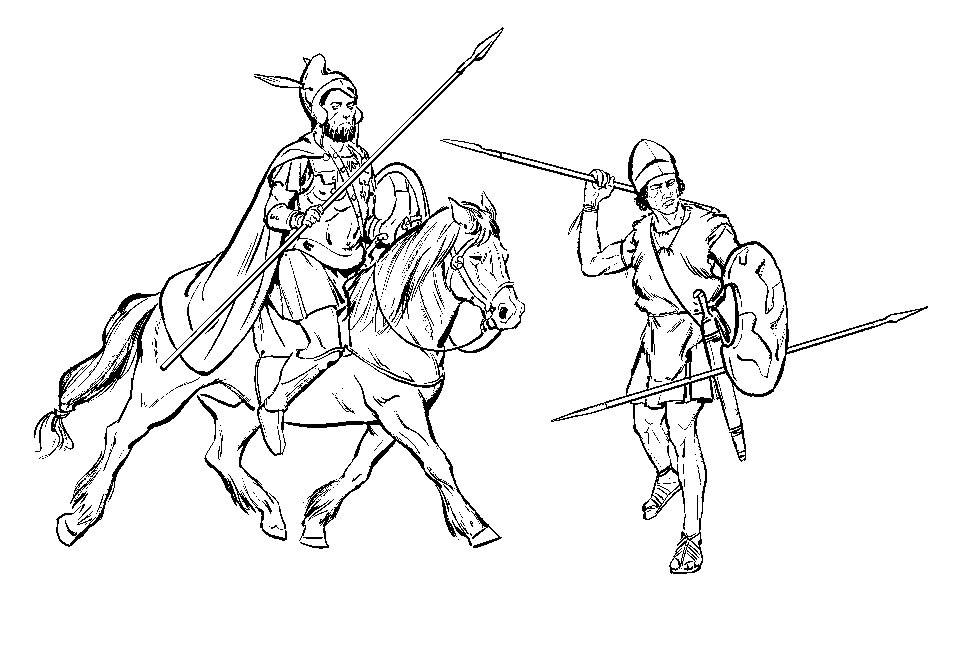The word “thane” means “martial companion,” although an older version of their name means “horse men,” denoting their status. The title is sometimes transliterated to “lord” particularly in older RuneQuest documents.
Thanes arose among the Orlanthi during the Second Age because of the increasingly sophisticated means of warfare of the age. It was discovered that an armed militia could be overcome by a smaller band of better trained and equipped warriors. Kings and chiefs recruited and equipped elite companions and gave them status equivalent to priests. They became a martial aristocracy among the Orlanthi.
Many are Rune Lords, a type of martial priest, others are members of tribal or city councils, and still others are individuals appointed by a tribe or clan to keep order or protect an area.
Given that the sons and daughters of a thane tends to inherit some of their status and training, the status is semi-hereditary. If the son or daughter of a thane takes a martial role in the community (and has any talent for it), they tend to inherit their parent’s leadership role. But as is common in Orlanthi society, if they lack the talent or the inclination that status is quickly lost.
![]()
![]()
So if it helps a thane can be:
- The title of any Orlanthi of superior social rank – but whom is not a king, chief, etc.(“the thanes of the clan ring”).
- The title of a warrior appointed by the local community to keep order or protect an area (“Thane of Apple Lane”).
- The term used to describe the warrior elite of a community. (“the chief and the thanes rode out to war”).
Do they get their gear from the clan? These are returned to the clan when the thane dies, or his son inherits them? Gear is normally personal property and passed down to whoever the immediate kin decide should get it. Or if the deceased made other arrangements, those are often honored.

